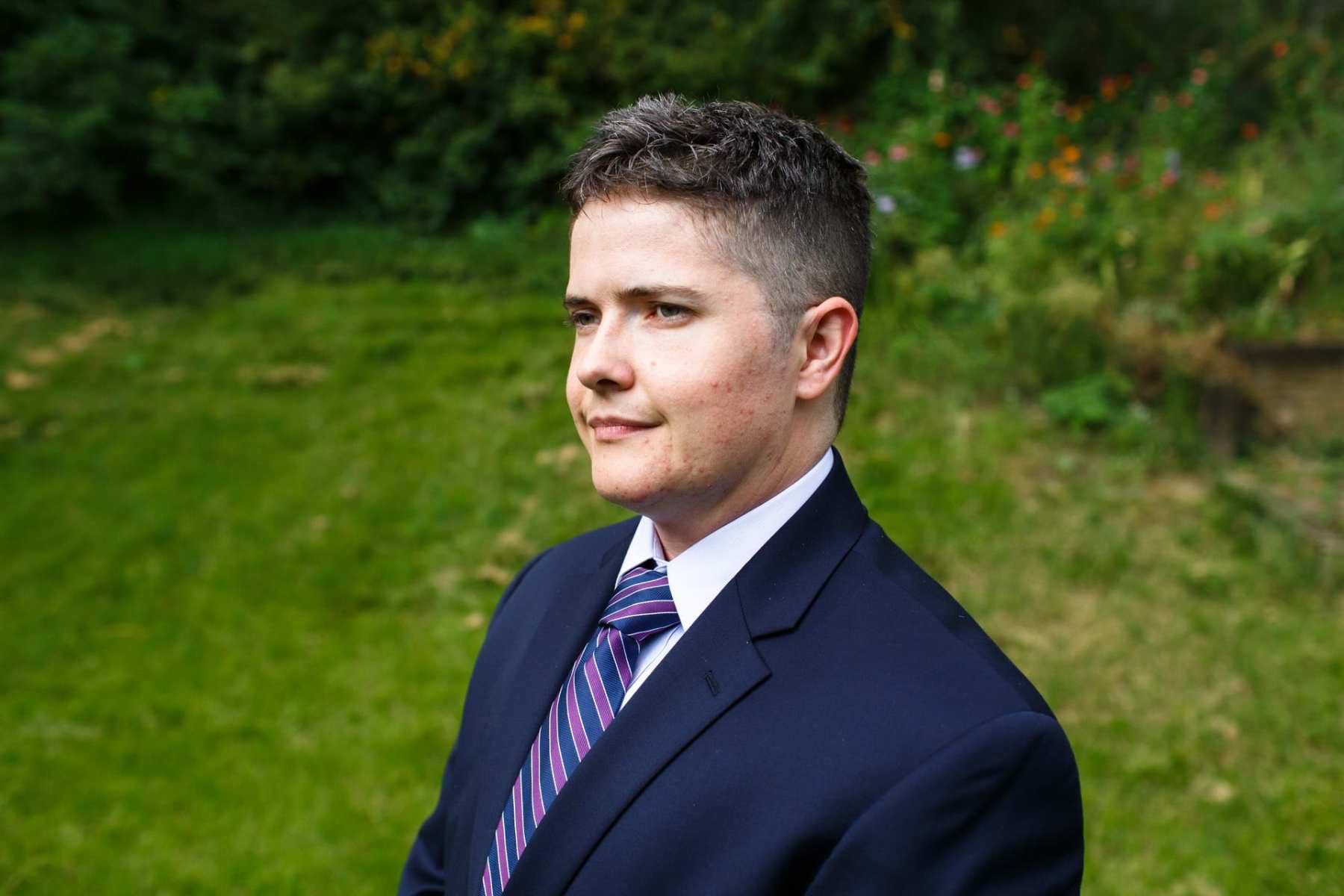For the latest news on the historic presidential inauguration and impacts of the new administration, subscribe to The 19th’s daily newsletter.
The Trump administration’s transgender military ban wasn’t just a blow to LGBTQ+ rights: The order likely represented an unprecedented employment challenge for a community already facing staggering unemployment rates.
On Monday, President Joe Biden struck down the ban in an executive order, allowing all qualified service members to serve.
“This question of how to enable all qualified Americans to serve in the military is easily answered by recognizing our core values,” the White House said in a statement. “America is stronger, at home and around the world, when it is inclusive. The military is no exception.”
Then-President Donald Trump first announced the ban on Twitter in 2017, but a series of court battles ensnared the policy before it finally went into effect in January 2019.
An estimated 13,763 of the military’s 14,700 transgender service members faced dismissal under the ban, according to data from the Palm Center, an institute that researches LGBTQ+ military inclusion.
Joshua Block, an attorney with the ACLU, said it’s unclear how many transgender people actually lost their jobs under the ban. The old policy allowed for trans service members who had a medical diagnosis of gender dysphoria prior to the ban’s implementation to continue service. The Palm Center found that 937 service members were grandfathered in under the rule.
“But everyone else, either because they didn’t feel safe enough yet to come forward or because they hadn’t yet become aware of their gender identity … all those folks have been serving in silence for the past two years,” Block said.
Bree Fram, communications director of the transgender military advocacy organization SPART*A, points out that the ban likely forced most to put off transition in order to stay employed.
“The other service members were allowed to continue serving as long as they did so in their sex assigned at birth,” Fram said. “They could not transition or access transition related medical care.”
With the ban lifted, Fram estimates that several hundred transgender will join the military annually.
“I am elated that the approximately 15,000 transgender service members proudly serving across the globe can rest easier knowing that their service to our nation is seen, valued and that they can continue to serve as their authentic selves,” said Emma Shinn, president of SPART*A and a captain in the Marine Corps, in a statement.
The military is the largest employer in the United States. Transgender people are twice as likely to serve as the general population, according to the 2015 U.S. Transgender Survey. That same survey found that transgender Americans are three times more likely to be unemployed than their cisgender peers. The Human Rights Campaign says the pandemic has only exacerbated that reality. LGBTQ+ people disproportionately make up workers in the service sector, where they are more likely to face exposure to COVID-19, and 29 percent of transgender adults live in poverty.
President Biden’s order allows us to put this shameful episode behind us.
Shannon Minter, legal director of the National Center for Lesbian Rights
According to the White House, the decision to reverse the ban was made based on a 2016 Department of Defense study, which found that allowing transgender people to serve openly would minimally impact the military in terms of health-care costs, a justification that Trump used for the ban.
The move makes good on a campaign promise Biden made to LGBTQ+ Americans to revoke the ban on day one of his presidency. Instead, that day Biden issued an executive order directing federal agencies to implement the Supreme Court’s landmark job nondiscrimination protections, signaling that the ban would be repealed in a matter of days.
LGBTQ+ organizations praised the president.
“President Biden’s order allows us to put this shameful episode behind us and marks the beginning of a much brighter era in which military service is once again based on a person’s qualifications, not on who they are,” said Shannon Minter, legal director of the National Center for Lesbian Rights, in a statement.
Brock Stone, petty officer first class in the Navy who sued the Trump administration, said in a statement that he is relieved.
“I joined the Navy in 2006 to serve my country, and my idea of patriotism includes speaking up for myself and anyone else who’s being held down,” Stone said. “No one in this country should be afraid to be themselves, to walk down a street, to apply for a job, to go out in public, or to exist.”






